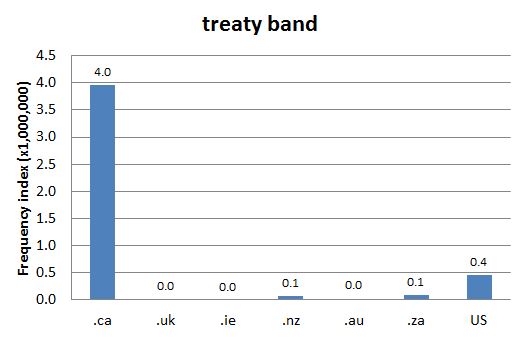DCHP-2
treaty band DCHP-2 (November 2016)
n. & adj. — Law, Aboriginal, especially First Nations
a First Nations group that has signed a treaty with the Canadian government.
Type: 5. Frequency — Some First Nations groups in Canada signed treaties with the British before Confederation in 1867, and with the Canadian government thereafter. Each treaty is different, although many lay out terms surrounding reserve lands, annuities and hunting and fishing rights (see AANDC reference). Digital archive research suggests that the term was first used in Canada, where it is also most prevalent (see Chart 1).
See also COD-2, s.v. "treaty band", which is marked "Cdn".See also: band ((1)) ((n.)) (def. 2a) Band List Indian Register treaty Indian treaty rights
- Also found in the negative, i.e. non-treaty band, early on; as of 1915 in our sources (see the quotations).
References:
- AANDC "Frequently Asked Questions About Aboriginal Peoples" Accessed 20 Aug. 2012
- COD-2
Images:
Chart 1: Internet Domain Search, 12 Oct. 2012
